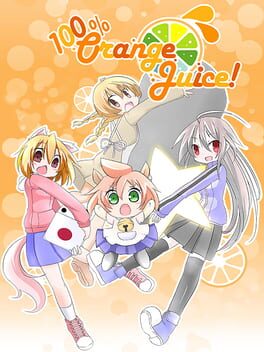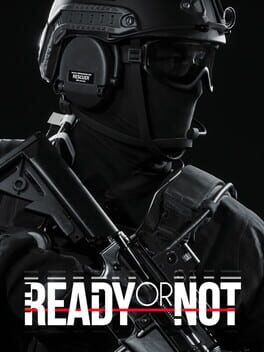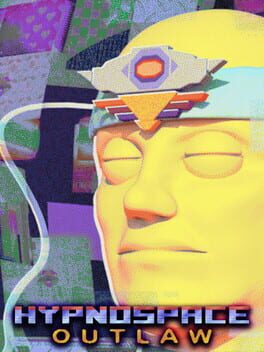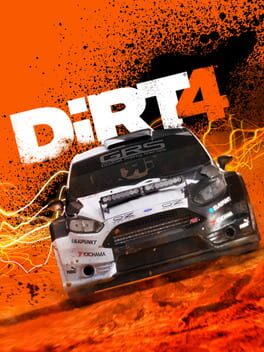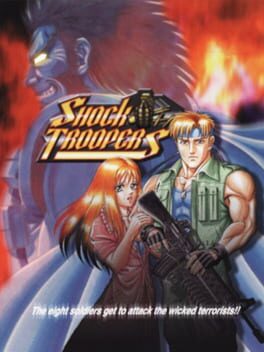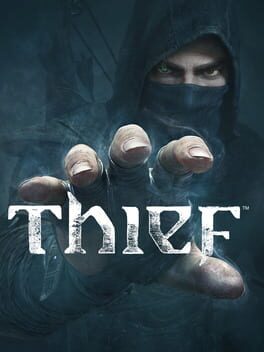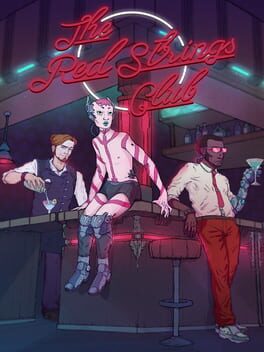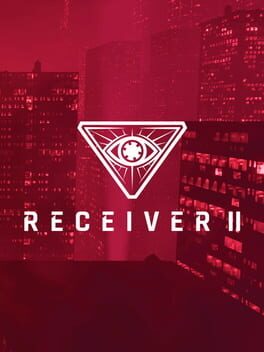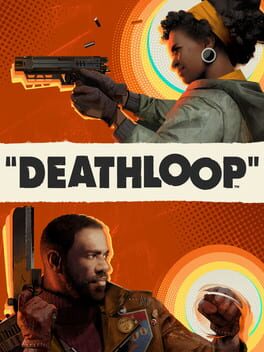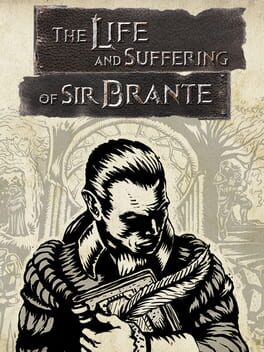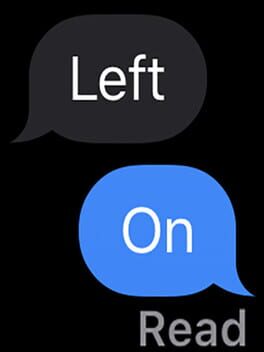jobosno
BACKER
2009
I experience the full spectrum of human emotion every single game. Everything people say about Mario Party ending friendships is a way better fit for this game, where it feels like 30% of games are flipped on their head in the last turn. Mario Party for gambling addicts and masochists.
Arguably more fun when you only kind of have an idea as to what's going on, that way you're not sitting there seething because your friend is playing fucking Maynie again. If you can get a group of people together who aren't going to start screaming and shit, though, it's a fun game to kill some time. Unlike Mario Party, it never feels like a slog when the turns pass so quickly.
There's immense satisfaction in having a strategy come together, especially when it's so dependent on getting the right cards, although there's also some decent meme potential - some of the most fun I've had with the game has come from playing Lone Rider and zooming around the board three times faster than everyone else before getting one-shot by the boss.
Arguably more fun when you only kind of have an idea as to what's going on, that way you're not sitting there seething because your friend is playing fucking Maynie again. If you can get a group of people together who aren't going to start screaming and shit, though, it's a fun game to kill some time. Unlike Mario Party, it never feels like a slog when the turns pass so quickly.
There's immense satisfaction in having a strategy come together, especially when it's so dependent on getting the right cards, although there's also some decent meme potential - some of the most fun I've had with the game has come from playing Lone Rider and zooming around the board three times faster than everyone else before getting one-shot by the boss.
2021
I've been waiting for a spiritual sequel to SWAT 4 for a very long time. I have been so eager for this hypothetical game that 4 years ago I - a person who never preorders anything - spent $120 United States Dollars on this game when it was just a video. Please adjust your perception of me accordingly.
There was a long alpha period where I was too afraid to pay much attention to the game, save for reading a few excited emails about how they've finally implemented doors (and oh boy, have they). Now that it's finally purchasable for the general public on Steam, I've tried it and… it's pretty good?
Don't get me wrong, this is not even remotely a finished product. Within our first three missions, a friend and I already ran into a bug that forced us to completely restart the level because I couldn't interact with the only door out of a room. But the core of SWAT 4's gameplay is here and it feels pleasant and modern - most importantly, actually using the equipment you lug around doesn't feel like a chore anymore. There are tweaks to the formula too, welcome changes that modify the balance of the game or add features present in popular mods for SWAT 4. Turning the game into a joke by spamming the beanbag shotgun is no longer an option, a melee button allows you to subdue civilians who won't let you handcuff them (grandma), and the addition of trapped doors forces you to slow down and greatly adds to the paranoia that comes with being outnumbered in a hostile environment.
BUT
As much as I enjoy the gameplay at the core of the experience, I've got a couple gripes, and they can be real stinkers, depending on your perspective.
The first and most minor are the early access-related complaints. I don't mind a lot of the jank since I've been playing SWAT 4 for years now, but new players are going to have questions that the game doesn't answer, bugs that you're not sure are truly bugs or not, and a lack of features / equipment. The game also doesn't feel like it's trying too hard to stray from SWAT 4's formula (thus becoming its own thing), but it feels like it's too early in the process to say whether the end product will feel the same way.
The other big one is the game's politics. A game like this is going to be overtly political and frankly I wasn't expecting a lot, but the developers of this game have made some… interesting choices. Probably the most objectionable is the civilian dialogue, as most of them will say something after you handcuff them - again, like SWAT 4. The women have terrible voice lines, including at least two separate lines hitting on the cops, and one racist voice line that also just… doesn't feel like it even makes sense? Thankfully the game has very little story compared to The Other Game, since the trailers for this game very much leaned into the "careful, devoted cop heroes are the only thing keeping a tidal wave of crime from crashing upon this city" idea. I know the developers split with the publisher of the game, and I've only seen a single mention of it so far indicating that it may be due to the devs' intention of setting a future level in a school shooting. Not really thrilled about where this game could go in the future - as things stand I'm expecting the game from 2005 to be the more respectful of the two.
All in all, I think I'm mixed on Ready or Not as a consumer product. I'm not holding out hope that this will become something I can recommend in good conscience, even though everything in it feels great. Kicking in doors feels thunderous. Developing a system to conquer missions becomes a satisfying collaborative puzzle. Taking a room where armed hostiles are mixed in with civilians without anyone (friend or foe) sustaining an injury is as exciting as beating any video game boss, crammed into a couple tense seconds. But I just can't recommend it, not before you look into the game, the developers and decide if you'd like to support them with $40 of your own money.
Perhaps this game will change, perhaps the devs will respond to my complaints if they get enough feedback. I've been pleasantly surprised before. Watch this space??
There was a long alpha period where I was too afraid to pay much attention to the game, save for reading a few excited emails about how they've finally implemented doors (and oh boy, have they). Now that it's finally purchasable for the general public on Steam, I've tried it and… it's pretty good?
Don't get me wrong, this is not even remotely a finished product. Within our first three missions, a friend and I already ran into a bug that forced us to completely restart the level because I couldn't interact with the only door out of a room. But the core of SWAT 4's gameplay is here and it feels pleasant and modern - most importantly, actually using the equipment you lug around doesn't feel like a chore anymore. There are tweaks to the formula too, welcome changes that modify the balance of the game or add features present in popular mods for SWAT 4. Turning the game into a joke by spamming the beanbag shotgun is no longer an option, a melee button allows you to subdue civilians who won't let you handcuff them (grandma), and the addition of trapped doors forces you to slow down and greatly adds to the paranoia that comes with being outnumbered in a hostile environment.
BUT
As much as I enjoy the gameplay at the core of the experience, I've got a couple gripes, and they can be real stinkers, depending on your perspective.
The first and most minor are the early access-related complaints. I don't mind a lot of the jank since I've been playing SWAT 4 for years now, but new players are going to have questions that the game doesn't answer, bugs that you're not sure are truly bugs or not, and a lack of features / equipment. The game also doesn't feel like it's trying too hard to stray from SWAT 4's formula (thus becoming its own thing), but it feels like it's too early in the process to say whether the end product will feel the same way.
The other big one is the game's politics. A game like this is going to be overtly political and frankly I wasn't expecting a lot, but the developers of this game have made some… interesting choices. Probably the most objectionable is the civilian dialogue, as most of them will say something after you handcuff them - again, like SWAT 4. The women have terrible voice lines, including at least two separate lines hitting on the cops, and one racist voice line that also just… doesn't feel like it even makes sense? Thankfully the game has very little story compared to The Other Game, since the trailers for this game very much leaned into the "careful, devoted cop heroes are the only thing keeping a tidal wave of crime from crashing upon this city" idea. I know the developers split with the publisher of the game, and I've only seen a single mention of it so far indicating that it may be due to the devs' intention of setting a future level in a school shooting. Not really thrilled about where this game could go in the future - as things stand I'm expecting the game from 2005 to be the more respectful of the two.
All in all, I think I'm mixed on Ready or Not as a consumer product. I'm not holding out hope that this will become something I can recommend in good conscience, even though everything in it feels great. Kicking in doors feels thunderous. Developing a system to conquer missions becomes a satisfying collaborative puzzle. Taking a room where armed hostiles are mixed in with civilians without anyone (friend or foe) sustaining an injury is as exciting as beating any video game boss, crammed into a couple tense seconds. But I just can't recommend it, not before you look into the game, the developers and decide if you'd like to support them with $40 of your own money.
Perhaps this game will change, perhaps the devs will respond to my complaints if they get enough feedback. I've been pleasantly surprised before. Watch this space??
2021
Kinda hard to fuck it up when you change so little from a game as good as Horizon 4. They've added a couple additional player-retention systems that I haven't bothered to understand, but the core draw of "arcade/sim-hybrid car game without the 'grind'" is mostly untouched from the previous entry in the series.
Another thing that's mostly untouched is the fact that the cast is almost entirely British, save for two Mexican characters (one of whom is a non-entity) who are ridiculously grating caricatures of Latino people. "Familia" is brought up an almost comical number of times in these unskippable cutscenes, and while the gameplay still carries a lot of the weight, I'm forced to assume that the writers first learned of Mexico (as a concept) less than two weeks before they started working on the game.
I can really only give this an 8 (at the time of this writing) in good conscience because you can blow through most of the cutscenes fairly quickly and start racing unimpeded. Driving around in the 1983 Audi Sport Quattro feels incredible - even if I'm still bitter about them taking the Lancia Delta from me - and I have spent entire play sessions just carving through dirt roads, observing some of the most beautifully arranged scenery I've seen in a racing game (even if individual details don't hold up to scrutiny). The one star missing from this rating feels massive though, and it's because the annoyances will rear their heads and you will remember them when you're done playing. I don't mind checklists in games like this - it can be nice to kill some time by sitting down, knocking out a few mini-objectives and moving on with your day. But with the new accolade system, there are so fucking many of these little achievements and they're so easy to rack up. I unlocked the entire campaign without consciously engaging with this system a single time, making me wonder why they've even bothered to graft this system onto a perfectly fine game instead of just using a normal XP system (the way it already does for player level). I can only assume it's there to torture completionists with an endless torrent of tasks that take two minutes each, keeping them playing this game until FH6 comes out and they can get started on the new checklist.
I suppose, though, that I can only sound so cynical about these things because the game kept me playing long enough for the little nitpicks to leave a blister. When the game started I wasn't really thinking about the aesthetics of British people airdropping vehicles to set up little outposts on Mexican soil - I was taken with the sense of speed, with the gorgeous environment, with the way the soundtrack's energy lined up perfectly with everything happening on screen. I've complained a bit here, and I could complain a lot more - it's a skill I've mastered over the years - but the truth of the matter is that I started out by putting 33 hours into this game over a 4 day weekend, and I will likely do so several more times before I claim to be done with it. I bounce between racing games but always return to Horizon for its variety - variety in race types, in cars (the ever-desired hypercars and the incompetent novelty vehicles), and in open world activities. The experience of playing FH5 will probably never fully live up to my first experiences of playing FH4, but it is absolutely a worthy successor.
Another thing that's mostly untouched is the fact that the cast is almost entirely British, save for two Mexican characters (one of whom is a non-entity) who are ridiculously grating caricatures of Latino people. "Familia" is brought up an almost comical number of times in these unskippable cutscenes, and while the gameplay still carries a lot of the weight, I'm forced to assume that the writers first learned of Mexico (as a concept) less than two weeks before they started working on the game.
I can really only give this an 8 (at the time of this writing) in good conscience because you can blow through most of the cutscenes fairly quickly and start racing unimpeded. Driving around in the 1983 Audi Sport Quattro feels incredible - even if I'm still bitter about them taking the Lancia Delta from me - and I have spent entire play sessions just carving through dirt roads, observing some of the most beautifully arranged scenery I've seen in a racing game (even if individual details don't hold up to scrutiny). The one star missing from this rating feels massive though, and it's because the annoyances will rear their heads and you will remember them when you're done playing. I don't mind checklists in games like this - it can be nice to kill some time by sitting down, knocking out a few mini-objectives and moving on with your day. But with the new accolade system, there are so fucking many of these little achievements and they're so easy to rack up. I unlocked the entire campaign without consciously engaging with this system a single time, making me wonder why they've even bothered to graft this system onto a perfectly fine game instead of just using a normal XP system (the way it already does for player level). I can only assume it's there to torture completionists with an endless torrent of tasks that take two minutes each, keeping them playing this game until FH6 comes out and they can get started on the new checklist.
I suppose, though, that I can only sound so cynical about these things because the game kept me playing long enough for the little nitpicks to leave a blister. When the game started I wasn't really thinking about the aesthetics of British people airdropping vehicles to set up little outposts on Mexican soil - I was taken with the sense of speed, with the gorgeous environment, with the way the soundtrack's energy lined up perfectly with everything happening on screen. I've complained a bit here, and I could complain a lot more - it's a skill I've mastered over the years - but the truth of the matter is that I started out by putting 33 hours into this game over a 4 day weekend, and I will likely do so several more times before I claim to be done with it. I bounce between racing games but always return to Horizon for its variety - variety in race types, in cars (the ever-desired hypercars and the incompetent novelty vehicles), and in open world activities. The experience of playing FH5 will probably never fully live up to my first experiences of playing FH4, but it is absolutely a worthy successor.
2019
Recommended by lpslucasps on this list.
I've managed to shoot myself in the foot a little bit by promising to "review" anything on the aforementioned list, as this game has proven to be an especially difficult one. I've got a lot on my mind after playing it and I'm going to have to cheat a little bit with the format, because I don't think I can nicely condense this down into a single review with a coherent theme.
- Loads of nostalgic authenticity throughout the experience. I don't think this comes as a surprise to anyone given that it's the most surface-level observation, but it's true. I was born at the right time and raised by a tech-savvy mom, allowing me to witness the end of this era of the internet, even if I was a little young. There are a lot of details here that are so easy to forget in the era of WordPress and Squarespace sites prepared straight out of the can, adhering to good graphic design principles.
- It's a little uncomfortable seeing how little some things have changed. There are still painfully earnest posts from children and teens trying to figure things out, every new technology is still a fight between little Davids trying to unseat massive, corporate Goliaths before they take over the Cool New Thing™. Communities have always had awful shit that moderators are woefully unequipped to handle, on platforms that the creators don't even fully understand...
- ...and it all reminds me of being at work. I work in IT and found myself slipping into work mode a lot here, forced to emotionally detach myself from the cases/tickets I'm working on. I see your very real, very serious harassment case, and I can't do anything to punish them because I don't have the tools. I am powerless, except when it comes to ruining someone's day because a policy they've never read said posting a picture of a cartoon fish is an actionable offense. New fires will always ignite as you're putting out the old ones, and moderators are given this cruel, Sisyphean task of rectifying every possible issue on a platform using extremely limited tools that are hardly suited to the task.
- I feel like a lot of my enjoyment is tethered to my own memory of the ugly, poorly laid-out webpages of old (complete with horrendously compressed gifs, videos, and music). I can't speak to how it'll play for those without the memories - the memories aren't important for knowledge reasons, but for patience reasons. This game is full of tedium, and while I'm not trying to pitch this as some "zoomers will hate this!", I would personally be a little annoyed by it all if it didn't remind me of times where I was younger and dumber. If you get past that (or don't care), there's a lot of love here - love for technology of the past, and love for the people that use it. It's a pretty little digital diorama, and I like what it represents.
- I stand with Gooper
I've managed to shoot myself in the foot a little bit by promising to "review" anything on the aforementioned list, as this game has proven to be an especially difficult one. I've got a lot on my mind after playing it and I'm going to have to cheat a little bit with the format, because I don't think I can nicely condense this down into a single review with a coherent theme.
- Loads of nostalgic authenticity throughout the experience. I don't think this comes as a surprise to anyone given that it's the most surface-level observation, but it's true. I was born at the right time and raised by a tech-savvy mom, allowing me to witness the end of this era of the internet, even if I was a little young. There are a lot of details here that are so easy to forget in the era of WordPress and Squarespace sites prepared straight out of the can, adhering to good graphic design principles.
- It's a little uncomfortable seeing how little some things have changed. There are still painfully earnest posts from children and teens trying to figure things out, every new technology is still a fight between little Davids trying to unseat massive, corporate Goliaths before they take over the Cool New Thing™. Communities have always had awful shit that moderators are woefully unequipped to handle, on platforms that the creators don't even fully understand...
- ...and it all reminds me of being at work. I work in IT and found myself slipping into work mode a lot here, forced to emotionally detach myself from the cases/tickets I'm working on. I see your very real, very serious harassment case, and I can't do anything to punish them because I don't have the tools. I am powerless, except when it comes to ruining someone's day because a policy they've never read said posting a picture of a cartoon fish is an actionable offense. New fires will always ignite as you're putting out the old ones, and moderators are given this cruel, Sisyphean task of rectifying every possible issue on a platform using extremely limited tools that are hardly suited to the task.
- I feel like a lot of my enjoyment is tethered to my own memory of the ugly, poorly laid-out webpages of old (complete with horrendously compressed gifs, videos, and music). I can't speak to how it'll play for those without the memories - the memories aren't important for knowledge reasons, but for patience reasons. This game is full of tedium, and while I'm not trying to pitch this as some "zoomers will hate this!", I would personally be a little annoyed by it all if it didn't remind me of times where I was younger and dumber. If you get past that (or don't care), there's a lot of love here - love for technology of the past, and love for the people that use it. It's a pretty little digital diorama, and I like what it represents.
- I stand with Gooper
2017
I initially wrote a more ordinary review about DiRT 4 as a set of features, describing how the car feels and how it compares to the DiRT Rally series. After a little more thought, though, none of that really stands out enough to warrant writing a whole review. What's remarkable, though, is the sense of camaraderie you feel with the AI co-driver.
No other sports game has done as good a job with this. In most sports games, your AI teammates are (at best) competent enough not to think about, and at worst feel like poorly concealed double agents. DiRT 4's co-driver demonstrates that you need them through your own fuckups and the moments in which you doubt the accuracy of the pacenotes. Moments in which you hear "caution crest, immediate right 1, don't cut" and think "eh, this looks just like any other sharp right turn" only to realize that sight-reading that turn would've air-mailed you both right off a cliff. Moments in which you have screwed up badly enough to lose your headlights on a night stage and can barely see your own car, but still manage to post a decent enough time because the course is being read to you.
This isn't the first rally game to include pacenotes, and it's not even the first game in the DiRT series to include them either. But the arcade elements present here lend the game a greater sense of speed and a more balanced sense of danger - I've played both DiRT Rally games prior to this and never really felt like I should be going all that fast unless I want to hit a fence at 16 kph and somehow simultaneously puncture 3 separate tires. With greater control over my car, though, and somewhat decreased vehicle damage, I feel like I can fly around corners much faster - meaning that my co-driver is all the more valuable when she's telling me how I should crest a hill, or when I can safely cut a turn, reining me in when I get a little too confident. And sure, the co-driver isn't some well-rounded human character, given that she never misreads the pacenotes, or drops them, or loses her place. But a little chatter at the beginning and end of races about how well you did, or encouraging you to do your best despite damage to the car, that goes a long way towards making her feel like an incredibly trustworthy human instead of the "robot reading from a script" that she actually is.
DiRT 4 has actually managed to succeed in making me feel like I've got a dependable teammate when I'm playing completely alone, something that I've never seen outside of scripted, story-oriented games, and they managed to do it primarily through arcade-like driving physics - emboldening me to hit the gas a little harder, and take blind corners with confidence.
No other sports game has done as good a job with this. In most sports games, your AI teammates are (at best) competent enough not to think about, and at worst feel like poorly concealed double agents. DiRT 4's co-driver demonstrates that you need them through your own fuckups and the moments in which you doubt the accuracy of the pacenotes. Moments in which you hear "caution crest, immediate right 1, don't cut" and think "eh, this looks just like any other sharp right turn" only to realize that sight-reading that turn would've air-mailed you both right off a cliff. Moments in which you have screwed up badly enough to lose your headlights on a night stage and can barely see your own car, but still manage to post a decent enough time because the course is being read to you.
This isn't the first rally game to include pacenotes, and it's not even the first game in the DiRT series to include them either. But the arcade elements present here lend the game a greater sense of speed and a more balanced sense of danger - I've played both DiRT Rally games prior to this and never really felt like I should be going all that fast unless I want to hit a fence at 16 kph and somehow simultaneously puncture 3 separate tires. With greater control over my car, though, and somewhat decreased vehicle damage, I feel like I can fly around corners much faster - meaning that my co-driver is all the more valuable when she's telling me how I should crest a hill, or when I can safely cut a turn, reining me in when I get a little too confident. And sure, the co-driver isn't some well-rounded human character, given that she never misreads the pacenotes, or drops them, or loses her place. But a little chatter at the beginning and end of races about how well you did, or encouraging you to do your best despite damage to the car, that goes a long way towards making her feel like an incredibly trustworthy human instead of the "robot reading from a script" that she actually is.
DiRT 4 has actually managed to succeed in making me feel like I've got a dependable teammate when I'm playing completely alone, something that I've never seen outside of scripted, story-oriented games, and they managed to do it primarily through arcade-like driving physics - emboldening me to hit the gas a little harder, and take blind corners with confidence.
1997
Recommended by kingbancho on this list.
A game comprising solely what a teenager in 1996 would think is cool. And to be fair, that teenager gets a lot of things right. The opinions of Backloggd users should be judged based on whether they think "dude on a motorcycle, throwing explosive boomerangs at tanks before somersaulting off a cliff into the jungle below" is sufficiently exciting.
It feels surprisingly good to play. There's only three buttons (four if you're tagging in other characters) but it's still a competent Souls-like, taking clear inspiration from FromSoft's flagship IP - a combat roll, environmental storytelling, an Ornstein and Smough boss fight, the ability to use a bow for which you carry surprisingly few arrows. In all seriousness, It could stand to have a little more enemy variety thrown in - there's plenty of variance if you include mini-bosses and bosses-bosses, but the path to those bosses will inevitably be slightly different flavors of green dude: green dude shooting at you, green dude smoking, green dude carrying a stretche-- ahh.
I do wish the characters themselves were more unique, since a couple of them feel functionally identical, but the ones that stand out (again, the boomerangs) are genuinely fun to use and make the experience fresh when "gunboy with grenade" starts to lose its novelty. The experience overall is short enough that you probably won't get that tired of the player characters unless you're really goofing it up, but I do think it's worth mentioning since I tend to value variety pretty highly in games.
I'd like to say more, but I don't have a lot of top-down shooters of any kind under my belt, much less these older arcade-style games. Given that I wasn't expecting to like this at all going in, the fact that I've come out of the experience this positive is a testament to the strength of the core experience and its steep learning curve.
A game comprising solely what a teenager in 1996 would think is cool. And to be fair, that teenager gets a lot of things right. The opinions of Backloggd users should be judged based on whether they think "dude on a motorcycle, throwing explosive boomerangs at tanks before somersaulting off a cliff into the jungle below" is sufficiently exciting.
It feels surprisingly good to play. There's only three buttons (four if you're tagging in other characters) but it's still a competent Souls-like, taking clear inspiration from FromSoft's flagship IP - a combat roll, environmental storytelling, an Ornstein and Smough boss fight, the ability to use a bow for which you carry surprisingly few arrows. In all seriousness, It could stand to have a little more enemy variety thrown in - there's plenty of variance if you include mini-bosses and bosses-bosses, but the path to those bosses will inevitably be slightly different flavors of green dude: green dude shooting at you, green dude smoking, green dude carrying a stretche-- ahh.
I do wish the characters themselves were more unique, since a couple of them feel functionally identical, but the ones that stand out (again, the boomerangs) are genuinely fun to use and make the experience fresh when "gunboy with grenade" starts to lose its novelty. The experience overall is short enough that you probably won't get that tired of the player characters unless you're really goofing it up, but I do think it's worth mentioning since I tend to value variety pretty highly in games.
I'd like to say more, but I don't have a lot of top-down shooters of any kind under my belt, much less these older arcade-style games. Given that I wasn't expecting to like this at all going in, the fact that I've come out of the experience this positive is a testament to the strength of the core experience and its steep learning curve.
2014
The game feels great to control, but there's so many baffling decisions in this one, from the YA-novel writing to making the entire screen flash white every time you enter light for even a nanosecond. Taking it as its own game separate from the earlier entries in the Thief series, it's not horrendous - if you told me this was the beta for a game due out in several months to a year I'd say that's fine, because nothing here is so bad that it necessitates burning everything down and starting again at the foundation. But there's so many little blemishes that it seriously affects the final product. 🤷
2018
With how long the ending sequence is, it feels like there are two games here, and I really love the idea of both of them. Both the "bartending and conversation" portion and the social engineering portion are really interesting, and with a less strange ending I'd probably rate this a full star higher. I can't say it "comes out of nowhere" but it really makes me wish they went in a different direction with all this momentum they'd built up, because as things stand I'm left reflecting on the other sour moments - moments where I was stuck doing the drink-pouring minigame for slightly too long, the moment where a trans character's deadname is a puzzle answer (even knowing this was a thing going in, it still feels... very weird and unnecessary), etc. When this game is at its strongest it creates those moments that your mind just latches onto, a powerful vignette that you just want to capture forever in amber, but with such prominent shortcomings for its short runtime I'm left wishing we got a slightly different product instead.
2020
CW: Light discussion of suicide
When you think about it, it is a little odd how uniform the controls for guns are across games. It’s not even limited to shooters - any game where a gun is in your hands for more than a minute or two will probably have you (on keyboard and mouse) shooting with left click, aiming with right click, and reloading with R. It’s so commonplace that games that dispense with this control scheme tend to stick out in your memory as One Of The Things That Game Does. To be fair, Receiver 2 does still bring back some of what I just mentioned - you shoot with left mouse, aim with right mouse, and R… kind of reloads? Well, it racks the slide. It’s a fairly minor part of reloading given that you don’t do it every time, but it counts. Depending on how you want to break it down (and the state that your gun is in) there are several additional steps, but don’t worry, those all have buttons too, separate buttons.
One of the interesting things about having to press forty goddamn buttons to reload your gun is that it becomes a kind of meditative practice. If you’re able to avoid saying “fuck this” after shooting yourself in the leg on three consecutive reload attempts, you begin to develop muscle memory. This is usually a good thing, but you will have to adapt to different guns or you will go to put your Glock on safety and shoot yourself in the leg in full-auto. This isn’t all about the buttons you press, though, because Receiver 1 had fucky controls too, and this isn’t a review of Receiver 1.
Receiver 2 takes things to the next level in a number of ways - the most obvious is that the game has actual textures now (instead of vaguely gesturing in the direction of “graphics”), but there are also more guns, more tapes, and additional mechanics. Receiver 2 is about diligence. Better textures and lighting means those turrets are better able to blend into the background. More guns means you need to remember additional quirks for each gun. More mechanics means that you can no longer just autopilot once you’ve figured the game out - bullets will richochet, negligent discharges will happen. You will need to listen to the tapes to figure out if it’s safe, or if -
I also mentioned shooting yourself in the leg. This will happen. A lot. It happens significantly less frequently as you get the rhythm of the game, and then you will get the Single-Action Army and you will remember what shooting yourself in the leg is like. I said it’s a game about diligence - the tapes are not joking about understanding the lethality of the tool and "anchoring yourself in the moment". It is not about autopiloting, it is about understanding the process so thoroughly that you can make the correct decision under pressure without hesitation.
So what are all those other tapes about? Why does the dude always sound like he's about to cry? While it’s not very clear if the Receivers are a cult of some kind, they’re at least some kind of movement dedicated to fighting The Threat, a nigh-supernatural force that preys on unsteady or unfocused minds. When its effects are at their worst, this can result in the Receiver taking their own life... and this is where my feelings on the game’s themes become a little mixed. Suicidal people are generally treated with dignity in the game and are still granted agency in its story, despite the influence of “The Threat” on their decisions, but mixing in lore elements when talking about actual suicide feels a touch wrong, even if the message is generally right. It does help the themes of the game come full circle - themes that initially feel like they’re about a spooky ghost that places turrets everywhere, but transform with time into warnings about taking care of your mental health. The Threat Echoes - another new game mechanic - are also a bit indelicate unless you read the reward(?) tapes afterward (they don’t automatically play) where their purpose is made clear: highlighting how easy it is to lose sight of the people who value you and your company when things go south.
It’s not a perfect way to send this message, but it’s very clear the developers put a lot of care in and are sincere about it, and I do think it makes a lot of good smaller points on the way to painting its grander picture. It’s an interesting message to attach to an extremely mechanically unique game, and - in addition to wishing more people played it - I wish there was more exploration of the themes it contains, because I do think there’s a lot to talk about that’s just being left on the table when Receiver 2 does find its way into the conversation.
When you think about it, it is a little odd how uniform the controls for guns are across games. It’s not even limited to shooters - any game where a gun is in your hands for more than a minute or two will probably have you (on keyboard and mouse) shooting with left click, aiming with right click, and reloading with R. It’s so commonplace that games that dispense with this control scheme tend to stick out in your memory as One Of The Things That Game Does. To be fair, Receiver 2 does still bring back some of what I just mentioned - you shoot with left mouse, aim with right mouse, and R… kind of reloads? Well, it racks the slide. It’s a fairly minor part of reloading given that you don’t do it every time, but it counts. Depending on how you want to break it down (and the state that your gun is in) there are several additional steps, but don’t worry, those all have buttons too, separate buttons.
One of the interesting things about having to press forty goddamn buttons to reload your gun is that it becomes a kind of meditative practice. If you’re able to avoid saying “fuck this” after shooting yourself in the leg on three consecutive reload attempts, you begin to develop muscle memory. This is usually a good thing, but you will have to adapt to different guns or you will go to put your Glock on safety and shoot yourself in the leg in full-auto. This isn’t all about the buttons you press, though, because Receiver 1 had fucky controls too, and this isn’t a review of Receiver 1.
Receiver 2 takes things to the next level in a number of ways - the most obvious is that the game has actual textures now (instead of vaguely gesturing in the direction of “graphics”), but there are also more guns, more tapes, and additional mechanics. Receiver 2 is about diligence. Better textures and lighting means those turrets are better able to blend into the background. More guns means you need to remember additional quirks for each gun. More mechanics means that you can no longer just autopilot once you’ve figured the game out - bullets will richochet, negligent discharges will happen. You will need to listen to the tapes to figure out if it’s safe, or if -
I also mentioned shooting yourself in the leg. This will happen. A lot. It happens significantly less frequently as you get the rhythm of the game, and then you will get the Single-Action Army and you will remember what shooting yourself in the leg is like. I said it’s a game about diligence - the tapes are not joking about understanding the lethality of the tool and "anchoring yourself in the moment". It is not about autopiloting, it is about understanding the process so thoroughly that you can make the correct decision under pressure without hesitation.
So what are all those other tapes about? Why does the dude always sound like he's about to cry? While it’s not very clear if the Receivers are a cult of some kind, they’re at least some kind of movement dedicated to fighting The Threat, a nigh-supernatural force that preys on unsteady or unfocused minds. When its effects are at their worst, this can result in the Receiver taking their own life... and this is where my feelings on the game’s themes become a little mixed. Suicidal people are generally treated with dignity in the game and are still granted agency in its story, despite the influence of “The Threat” on their decisions, but mixing in lore elements when talking about actual suicide feels a touch wrong, even if the message is generally right. It does help the themes of the game come full circle - themes that initially feel like they’re about a spooky ghost that places turrets everywhere, but transform with time into warnings about taking care of your mental health. The Threat Echoes - another new game mechanic - are also a bit indelicate unless you read the reward(?) tapes afterward (they don’t automatically play) where their purpose is made clear: highlighting how easy it is to lose sight of the people who value you and your company when things go south.
It’s not a perfect way to send this message, but it’s very clear the developers put a lot of care in and are sincere about it, and I do think it makes a lot of good smaller points on the way to painting its grander picture. It’s an interesting message to attach to an extremely mechanically unique game, and - in addition to wishing more people played it - I wish there was more exploration of the themes it contains, because I do think there’s a lot to talk about that’s just being left on the table when Receiver 2 does find its way into the conversation.
2021
Arkane has finally managed to make a version of Dishonored where open combat doesn't suck, hooray!
Deathloop is cobbled together from a lot of familiar parts. Throwing bottles, blinking, drop assassinations, a totally-not-supernatural double-jump. Anyone who has played the Dishonored games will find the tools available to the player to be very familiar, and yet playing Deathloop felt different enough from Dishonored that I was able to find it new and thrilling. Part of that is owed to the aesthetic, which is about as textbook 60s retro-future as you can get without completely drowning you in wild technicolor designs a la We Happy Few. But the other part, the more significant part, is that you are completely unable to manually save - a complete inversion from Arkane's other games.
Taken on its own the central concept of Deathloop is intriguing, as playing with time is something that I think is uniquely suited to games, where you get to be the agent of change. Arkane Lyon have already proven to be capable developers when messing with this concept, but Deathloop’s whole-hearted commitment to the idea is where I found real excitement. As you’re only given one day, you will never see anything as dramatic as the years of change from Dishonored 2’s “A Crack in the Slab”, but there are so many more locations and little details here that the end product is still satisfying.
One of the most notable changes if you’re playing this right after the Dishonored games is that this Corvo is named Colt, he has a voice, and he is absolutely not afraid to speak his mind, even if it’s dumb as shit (and it usually is). Colt being one of the few people who can remember earlier loops works fantastically as a game mechanic and as a source of comedy. Bringing it back to manually saving - the complete inability to do so incentivizes just taking risks and hoping you don’t get looped right as you’re trying to do some important shit, but the loop itself means that failure isn’t catastrophic. In fact, abusing this loop and its quirks to gather information in little bite-sized chunks makes revisiting the same levels feel much less tedious than it might sound on paper, as mastering the loop is as much a goal for Colt as it is for you as a player.
Gathering upgrades across loops doesn’t feel like a chore the way it could in Dishonored, and despite most of the powers making their original appearance in a stealth game, getting into firefights can be a lot of fun (and is viable!) - I had a build that let me create a bunch of poison clouds and then blow myself up to ignite them. Nexus - this game’s version of “Domino” - still feels pathetic and useless, but it's entirely possible that I'm too peabrained to use it effectively. There is a real sense of growth as you acquire more upgrades for your powers, and it’s exciting to tear through a level that you know like the back of your hand - up until a player-controlled Julianna tries to place landmines and snipe you in spawn. Yes, this game has an invasion mechanic, and although you can turn off player-controlled invasions (I recommend doing so) it’s still on by default, and as such is one of the game’s prominent weak points.
As you progress through the loop and listen to tens of “are they angry, enjoying this, or... both?” conversations between Julianna and Colt, these little fragmented bits of story, character quirks, and exploitable weaknesses coalesces into a real plot that has real momentum behind it. The game staggers a bit at the end - I won’t spoil anything - with the way it handles this, and it’s the other “big” drawback of this game. I suspect an ending with more playable elements would be more satisfying, but in an immersive sim every additional piece of gameplay adds tens of ways for things to break, so I don’t blame them for keeping things scripted. It’s not even really a let-down - it’s an adequate ending - it just can’t match the hype the previous 20 hours have built up. The mission preceding it (where you acquire enough information from the leads to go through the final loop) also has too much guidance, and I think that it would’ve been an excellent opportunity for the player to demonstrate their knowledge and mastery of the levels and nudge everything into place one last time. All the information is already in the journal so players who take a break from the game can still consult it for reminders, meaning there’s not really a reason for it to be so hand-holdy this far in. Again, this complaint is fairly minor and doesn’t affect my enjoyment of the game in any huge way.
Taken as an entire experience, Deathloop is one of my favorite games this year, and barring some completely bonkers release in the next few months (it’s possible) I suspect this will be my GOTY. It is so far up my alley that it’s scaling the wall at the far end: an imsim where being loud doesn’t feel like a sin, where the characters are as fun as the gameplay, and where you will never have to quicksave.
Deathloop is cobbled together from a lot of familiar parts. Throwing bottles, blinking, drop assassinations, a totally-not-supernatural double-jump. Anyone who has played the Dishonored games will find the tools available to the player to be very familiar, and yet playing Deathloop felt different enough from Dishonored that I was able to find it new and thrilling. Part of that is owed to the aesthetic, which is about as textbook 60s retro-future as you can get without completely drowning you in wild technicolor designs a la We Happy Few. But the other part, the more significant part, is that you are completely unable to manually save - a complete inversion from Arkane's other games.
Taken on its own the central concept of Deathloop is intriguing, as playing with time is something that I think is uniquely suited to games, where you get to be the agent of change. Arkane Lyon have already proven to be capable developers when messing with this concept, but Deathloop’s whole-hearted commitment to the idea is where I found real excitement. As you’re only given one day, you will never see anything as dramatic as the years of change from Dishonored 2’s “A Crack in the Slab”, but there are so many more locations and little details here that the end product is still satisfying.
One of the most notable changes if you’re playing this right after the Dishonored games is that this Corvo is named Colt, he has a voice, and he is absolutely not afraid to speak his mind, even if it’s dumb as shit (and it usually is). Colt being one of the few people who can remember earlier loops works fantastically as a game mechanic and as a source of comedy. Bringing it back to manually saving - the complete inability to do so incentivizes just taking risks and hoping you don’t get looped right as you’re trying to do some important shit, but the loop itself means that failure isn’t catastrophic. In fact, abusing this loop and its quirks to gather information in little bite-sized chunks makes revisiting the same levels feel much less tedious than it might sound on paper, as mastering the loop is as much a goal for Colt as it is for you as a player.
Gathering upgrades across loops doesn’t feel like a chore the way it could in Dishonored, and despite most of the powers making their original appearance in a stealth game, getting into firefights can be a lot of fun (and is viable!) - I had a build that let me create a bunch of poison clouds and then blow myself up to ignite them. Nexus - this game’s version of “Domino” - still feels pathetic and useless, but it's entirely possible that I'm too peabrained to use it effectively. There is a real sense of growth as you acquire more upgrades for your powers, and it’s exciting to tear through a level that you know like the back of your hand - up until a player-controlled Julianna tries to place landmines and snipe you in spawn. Yes, this game has an invasion mechanic, and although you can turn off player-controlled invasions (I recommend doing so) it’s still on by default, and as such is one of the game’s prominent weak points.
As you progress through the loop and listen to tens of “are they angry, enjoying this, or... both?” conversations between Julianna and Colt, these little fragmented bits of story, character quirks, and exploitable weaknesses coalesces into a real plot that has real momentum behind it. The game staggers a bit at the end - I won’t spoil anything - with the way it handles this, and it’s the other “big” drawback of this game. I suspect an ending with more playable elements would be more satisfying, but in an immersive sim every additional piece of gameplay adds tens of ways for things to break, so I don’t blame them for keeping things scripted. It’s not even really a let-down - it’s an adequate ending - it just can’t match the hype the previous 20 hours have built up. The mission preceding it (where you acquire enough information from the leads to go through the final loop) also has too much guidance, and I think that it would’ve been an excellent opportunity for the player to demonstrate their knowledge and mastery of the levels and nudge everything into place one last time. All the information is already in the journal so players who take a break from the game can still consult it for reminders, meaning there’s not really a reason for it to be so hand-holdy this far in. Again, this complaint is fairly minor and doesn’t affect my enjoyment of the game in any huge way.
Taken as an entire experience, Deathloop is one of my favorite games this year, and barring some completely bonkers release in the next few months (it’s possible) I suspect this will be my GOTY. It is so far up my alley that it’s scaling the wall at the far end: an imsim where being loud doesn’t feel like a sin, where the characters are as fun as the gameplay, and where you will never have to quicksave.
2020
A mesmerizing game at its best. The first few missions are such a slog, given that your starter trucks think of shallow mud as if it were glue, but getting a truck that can haul things over terrain with actual obstacles allows this game to show off how fun it can be.
It's a little bare in terms of gameplay elements - it really is just "deliver thing to place" - but the actual logistics of getting thing X to place Y turns this simple act of traversal into a puzzle, making this much more comparable to Death Stranding than SCS's Truck Sim games. It's a shame that the game is either ludicrously easy or really hard once you acquire a few trucks, with no real in-between. This means that the only real factor is "can your truck grip the terrain and/or winch itself along", which doesn't completely nullify the fun in the game, but I rarely feel like I need to use more than 4-5 of the 60+ vehicles in the game.
All in all it's still an enjoyable game that allows you to engage your brain a bit without being an overly stressful or action-packed experience. I'm not really big into them myself but I imagine this is peak "podcast game" material. My suggestion is to Cheat Engine in a small amount of money so the hump at the beginning is a little smaller, and you can get to the meat of the experience a little faster - you won't exactly be robbing yourself of the feeling of progression either, as most of the content is still locked behind levels.
It's a little bare in terms of gameplay elements - it really is just "deliver thing to place" - but the actual logistics of getting thing X to place Y turns this simple act of traversal into a puzzle, making this much more comparable to Death Stranding than SCS's Truck Sim games. It's a shame that the game is either ludicrously easy or really hard once you acquire a few trucks, with no real in-between. This means that the only real factor is "can your truck grip the terrain and/or winch itself along", which doesn't completely nullify the fun in the game, but I rarely feel like I need to use more than 4-5 of the 60+ vehicles in the game.
All in all it's still an enjoyable game that allows you to engage your brain a bit without being an overly stressful or action-packed experience. I'm not really big into them myself but I imagine this is peak "podcast game" material. My suggestion is to Cheat Engine in a small amount of money so the hump at the beginning is a little smaller, and you can get to the meat of the experience a little faster - you won't exactly be robbing yourself of the feeling of progression either, as most of the content is still locked behind levels.
At 95% positive, there is no stronger condemnation of Steam's rating system. Fairywands you owe me five dollars
2019
For many years, if you asked me what my favorite game series was, I probably would've said Splinter Cell. This is like you sent a team of scientists to develop the polar opposite game.
It is unabashedly loud, stylish and raucous. There is no stealth, because you are a fuck-huge monkey. You are given no tools but your hands and the speed to run at them, because you are a big, fuck-off monkey. The tutorial is three button prompts. There's music to accompany you on your quest for freedom, battling with you to see who can best embody this frenetic energy. You don't need more.
It is unabashedly loud, stylish and raucous. There is no stealth, because you are a fuck-huge monkey. You are given no tools but your hands and the speed to run at them, because you are a big, fuck-off monkey. The tutorial is three button prompts. There's music to accompany you on your quest for freedom, battling with you to see who can best embody this frenetic energy. You don't need more.
One of the best examples of what these choose-your-own-adventure games have to offer. A believable world that you learn about the way an actual child does - some things are explained to you very simply, but you will learn a lot about society through observation only to understand why the world works that way when you're much older. While a world where people can die multiple times is pretty interesting, I don’t feel like they took full advantage of this bit of lore in my first playthrough despite being almost constantly surrounded by death. Of course, it plays a significant role in the part of the game centered around the revolt (a fixed part of the timeline?) but most of the time it came up in my playthroughs, it was related to executions or people who just happened to be due for their “True Death” anyway. The mechanics of being reborn still make dying undesirable, but I may have to do a couple more replays to see if they use this in a more interesting way in other routes.
Unlike many other “Choose your own adventure” games I’m unable to level my usual complaint at it - many of these games grant you outcomes based on a single button press, making them feel unearned. Sir Brante does an excellent job of making all the outcomes in the game feel like natural consequences of your decisions, and trying to juggle all the sources of tension present in the game becomes quite a challenge. Even with the immediate effects of your actions shown, this is by no means an easy game, as each decision has increasing weight as the story goes on, each feeling like it could be the one that comes back to bite you in the end. Characters are given agency, moving their own pieces around and even people who share your goal may take approaches that conflict with yours. Supporting the upheaval of the current order feels just as tense as it should, and while Brante experiences far more excitement than the average person would, he never feels like a superhuman in his fictional context.
This isn’t to say the game is perfect. While the game generally does a good job of making you feel like there’s a diverse pool of possible outcomes, there are a few endings for the Brante family in particular that feel detached from their context in the story. There are also quite a few typos - nothing that really prevents you from understanding a sentence, but there are enough that I had to go back and do a repeat read more than once. Additionally, I feel like showing the possible events at the beginning of the chapter is the game tipping its hand a bit too much at the expense of the story. This would be a little better if the requirements to trigger the events weren’t displayed here, so that you still know what’s possible without knowing what exact stat threshold will guide you to the desired ending.
All that being said, I still think this is the best game of its type on the Steam store right now. It’s got a setting with enough interesting idiosyncrasies that you want to know more, but it's never weighed down with lore dumps. The decisions can be genuinely tough and the NPCs feel like they have real agency in the story, making great use of it by working towards understandable goals. It’s paced well, respects the player’s time, and doesn’t try to drown you in minutiae.
Unlike many other “Choose your own adventure” games I’m unable to level my usual complaint at it - many of these games grant you outcomes based on a single button press, making them feel unearned. Sir Brante does an excellent job of making all the outcomes in the game feel like natural consequences of your decisions, and trying to juggle all the sources of tension present in the game becomes quite a challenge. Even with the immediate effects of your actions shown, this is by no means an easy game, as each decision has increasing weight as the story goes on, each feeling like it could be the one that comes back to bite you in the end. Characters are given agency, moving their own pieces around and even people who share your goal may take approaches that conflict with yours. Supporting the upheaval of the current order feels just as tense as it should, and while Brante experiences far more excitement than the average person would, he never feels like a superhuman in his fictional context.
This isn’t to say the game is perfect. While the game generally does a good job of making you feel like there’s a diverse pool of possible outcomes, there are a few endings for the Brante family in particular that feel detached from their context in the story. There are also quite a few typos - nothing that really prevents you from understanding a sentence, but there are enough that I had to go back and do a repeat read more than once. Additionally, I feel like showing the possible events at the beginning of the chapter is the game tipping its hand a bit too much at the expense of the story. This would be a little better if the requirements to trigger the events weren’t displayed here, so that you still know what’s possible without knowing what exact stat threshold will guide you to the desired ending.
All that being said, I still think this is the best game of its type on the Steam store right now. It’s got a setting with enough interesting idiosyncrasies that you want to know more, but it's never weighed down with lore dumps. The decisions can be genuinely tough and the NPCs feel like they have real agency in the story, making great use of it by working towards understandable goals. It’s paced well, respects the player’s time, and doesn’t try to drown you in minutiae.
2020
i've never played a game where i have wanted so badly to torpedo a conversation just to get out of it. a remarkably realistic (read: unbearable) depiction of attempting to hold a text conversation with two of the worst conversationalists on the planet
if you didn't select the responses by platforming it would be even more obvious just how stiff and stilted this conversation actually is. it's a miracle either of these people decided to talk to the other after more than a week of this, because i was ready to tap out after 15 straight minutes of "just chillen, u?" In truth, the most wild detail of this story is that these bland conversations are apparently the noteworthy parts of this relationship over the course of several months.
if you didn't select the responses by platforming it would be even more obvious just how stiff and stilted this conversation actually is. it's a miracle either of these people decided to talk to the other after more than a week of this, because i was ready to tap out after 15 straight minutes of "just chillen, u?" In truth, the most wild detail of this story is that these bland conversations are apparently the noteworthy parts of this relationship over the course of several months.
